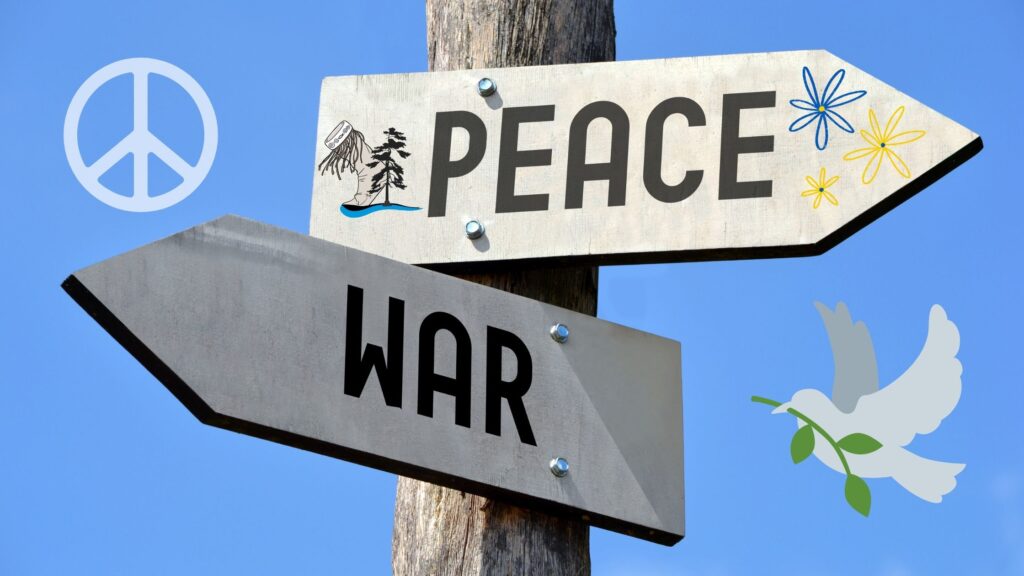
Every day in the news we see how militant groups wreak havoc on civilians and opponents alike. Culture of War is the global approach to natural occurrences such as floods, fires, hurricanes, and viruses. We treat every challenge as an enemy, to be eliminated, seemingly not interested in examining the cause or core reason conflicts and natural disasters occur. The military is funded, trained, and armed through international sources and are offered billions+ dollars to support their cause. The effect is the same, no war has solved a problem. War depletes people, environments and destroys natural and human beauty.
In comparison, there is the resilience of life that abounds to overcome our short-sightedness. In my search for a life through peaceful means, I have consistently come across people, from all walks of life, who work to bring peace to their world. I remember one man, at the National Research Centre, who spoke to me of the problems faced by departments in his workplace. He spoke so respectfully of the people and issues they struggle with on an ongoing basis. He was searching. Searching for a resource that would help them face these difficult conflicts without blaming, shaming, or punishing those involved. I was privileged to be selected by him, and the Executives he worked with, to design educational and facilitated dialogues to address the issues. There was no magical change, but there were profound outcomes where assumptions were challenged. Groupthink, which silences those being hurt by beliefs and hurtful words and deeds, was revealed. Other options were explored; options that did not diminish the work culture and offered more compassionate responses to dissent.
I have lived an interesting life. I have seen people choose to lead through peaceful means in the face of inhuman conditions. Two colleagues from Rwanda and Congo have worked for more than 10 years to become trained peacebuilders; to offer whatever support they can to displaced members in their countries. These people, victims of internationally supported genocide, cope with a lack of survival resources, food, clean and accessible water, housing, and health care. Both organized a group of like-minded professionals, to offer training in nonviolent conflict resolution as a means of prevention of crime and discord. They raise supplies and resources; they listen to the pain and understand fully the evidence of Post-Traumatic Stress Disorder. They are not interested in converting people to religious dogma or political agenda. The next two blogs will describe more of their contributions to peace.
In conclusion, there is hope. Peace can be possible when influenced by mindful, dynamic, peaceful intervention. Imagine what could be achieved if even a fraction of what goes into armament budgets, could be channelled into conflict resolution/peacebuilding initiatives. The power isn’t held only by those with defence budgets. What can we each do? Every day we can live for peace by choosing a fair distribution of resources, by acts of kindness and generosity. At this time, while aggressive war is occurring in Ukraine, please consider supporting peace builders, such as PATRIR, locally situated to the conflict providing nonviolent intervention and training to build peaceful co-existence in our world. https://patrir.ro




Well said Theresa! Wouldn’t it be wonderful if root causes were always investigated? It’s the way to solve problems in all areas of human endeavor, yet gets by-passed because of other agendas much too often.
I agree that peace builders have many challenges and dangers to face. Appropriate funding and protection would be provided by governments who are friendly with truth and justice.